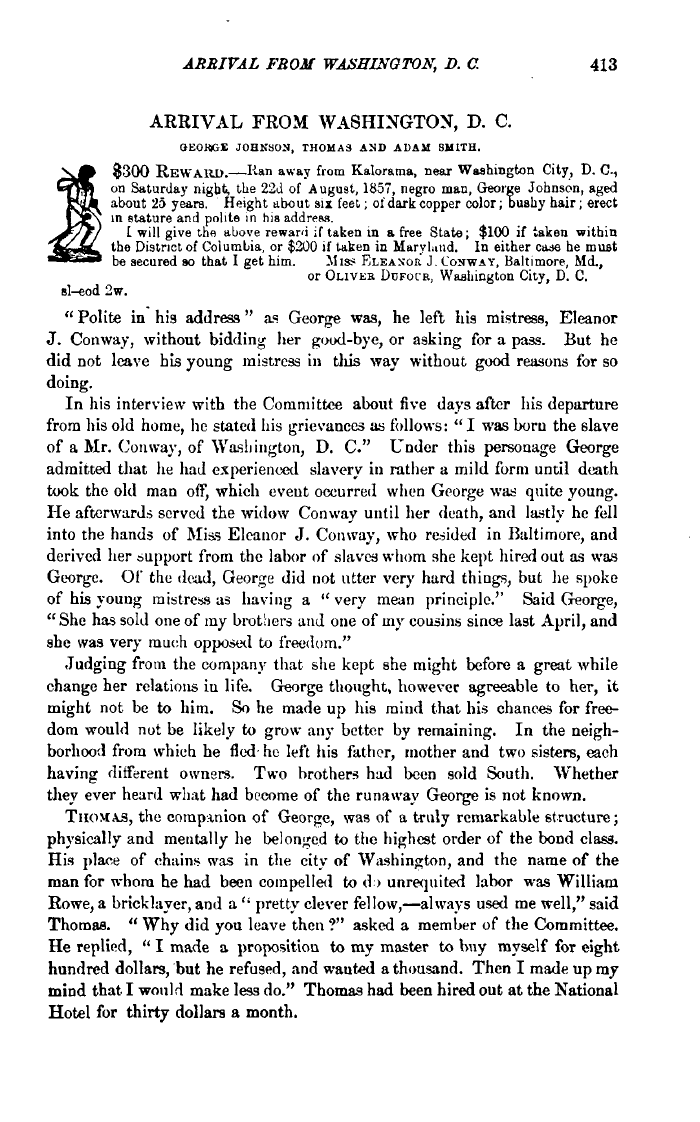 |
||||
 |
||||
| ARRIVAL FROM WASHINGTON, D. C. 413 ARRIVAL FROM WASHINGTON, D. C. OEOWGE JOHNSON, THOMAS AND ADAM SMITH. $300 REWARD.—Ran away from Kaloratna, near WashiDgton City, D. C., on Saturday night, the 22d of August, 1857, negro man, George Johnson, aged about 25 yeara. Height about six feet; of dark copper color; busby hair; erect in stature and polite in hia address. I will give th« above reward if taken in a free State; $100 if taken within the District of Columbia, or $200 if taken in Maryland. In either case he must be secured so that I get him. Mis? ELEANOR J. CONWAY, Baltimore, Md., or OLIVEE DDFOI-R, Washington City, D. C. sl-eod 2w. " Polite in his address" as George was, he left his mistress, Eleanor J. Conway, without bidding her good-bye, or asking for a pass. But he did not leave his young mistress in this way without good reasons for so doing. In his interview with the Committee about five days after his departure from his old home, he stated his grievances as follows: " I was boru the slave of a Mr. Con way, of Washington, D. C." Under this personage George admitted that he had experienced slavery in rather a mild form until death took the old man off, which event occurred when George was quite young. He afterwards served the widow Conway until her death, and lastly he fell into the hands of Miss Eleanor J. Conway, who resided in Baltimore, and derived her support from the labor of slaves whom she kept hired out as was George. Of the dead, George did not utter very hard things, but lie spoke of his young mistress as having a " very mean principle.'' Said George, " She has sold one of my brothers and one of my cousins since last April, and she was very much opposed to freedom." Judging from the compaiw that she kept she might before a great while change her relations iu life. George thought, however agreeable to her, it might not be to him. So he made up his mind that his chances for freedom would not be likely to grow any better by remaining. In the neighborhood from which he fled he left his father, mother and two sisters, each having different owners. Two brothers hod been sold South. Whether they ever heard what had become of the runaway George is not known. THOMAS, the companion of George, was of a truly remarkable structure; physically and mentally lie belonged to the highest order of the bond class. His place of chains was in the city of Washington, and the name of the man for whom he had been compelled to (1 > unrequited labor was William Rowe, a bricklayer, and a " pretty clever fellow,—always used me well," said Thomaa. " Why did you leave then °!" asked a member of the Committee. He replied, " I made a proposition to my master to buy myself for eight hundred dollars, but he refused, and wanted a thousand. Then I made up my mind that I would make less do." Thomas had been hired out at the National Hotel for thirty dollars a month. |